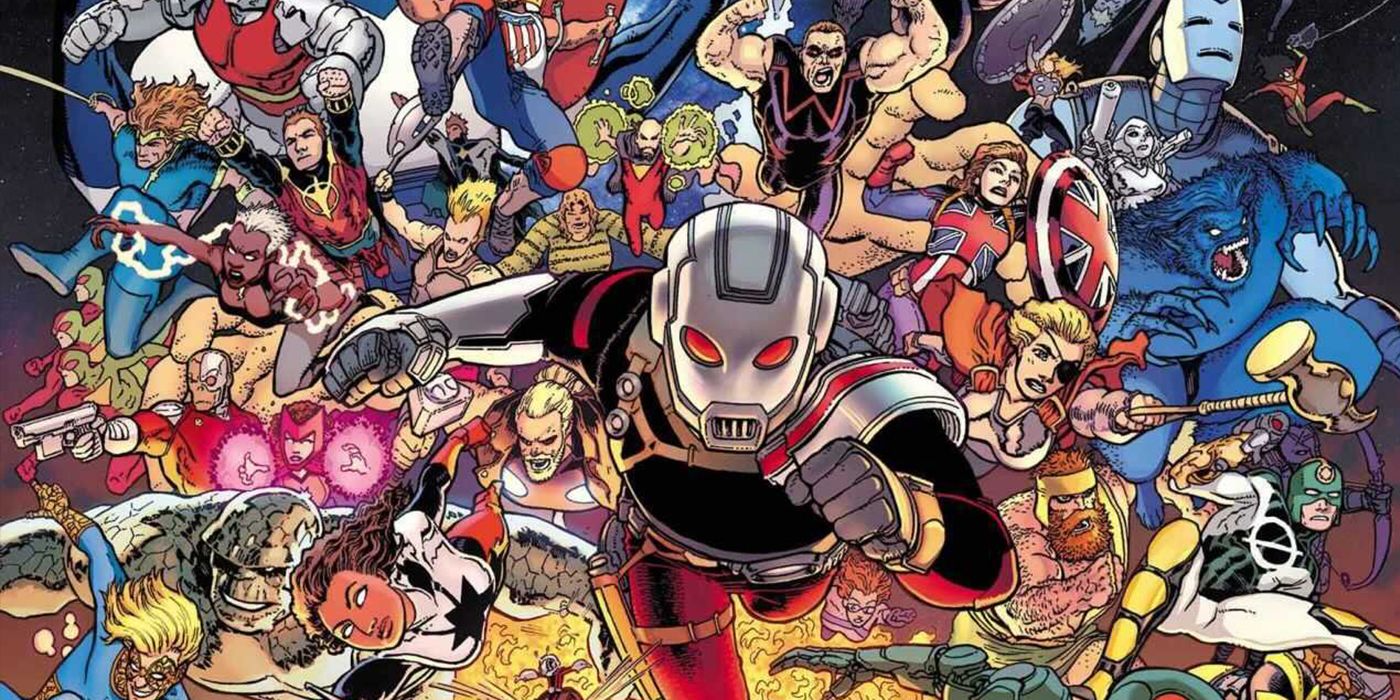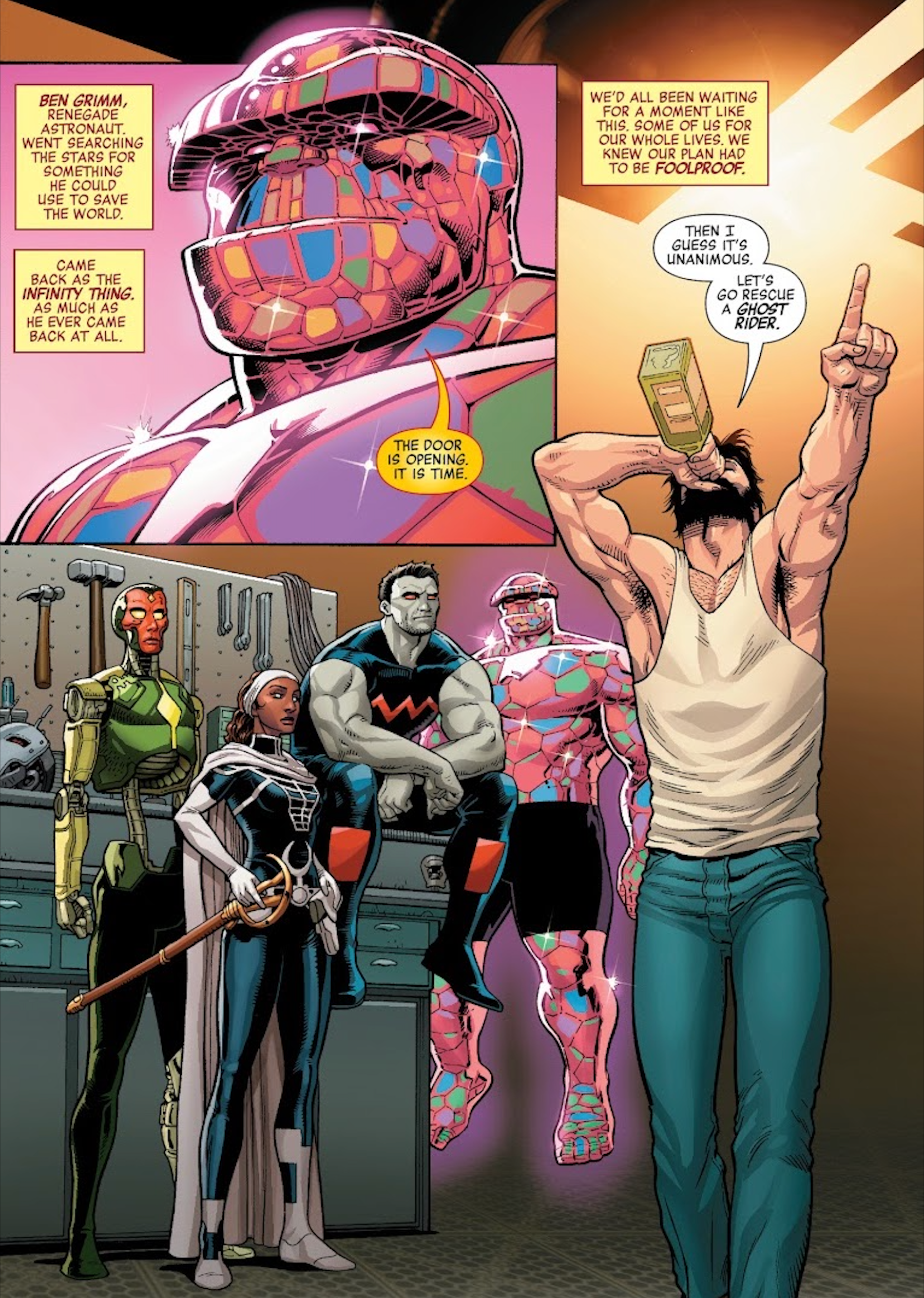Warning: contains spoilers for Avengers Forever #4!
The Multiverse of Marvel Comics is meant to unleash endless possibilities, but the company's desire to push this concept regarding the Avengers is more limiting than liberating. The idea of multiple versions of characters meeting one another, teaming up and/or fighting is an ideal way of answering countless "what if" questions so frequently asked by fans and writers. But Avengers Forever #4 is perhaps the multiversal straw that breaks the camel's back.
The concept of the multiverse is a godsend for all authors who struggle to maintain continuity between issues. Considering the Marvel Comics universe has existed since 1961 and hundreds of writers and artists have worked at the company ever since, each with their own ideas and ideals, mistakes were bound to happen. Thus, any massive continuity-associated blunder could simply be explained away as the character hailing from a different universe (DC in particular used the concept of the Multiverse to great effect when creating their many-earths multiverse - Earth-1, Earth-2, Earth-3, etc).
But the Avengers Forever series takes the concept and runs with it, giving readers more variants of established superheroes individual panels than some series present in entire issues. The Tony Stark seen below is a combination of Iron Man and Ant-Man (with a bit of an Indiana Jones-esque treasure hunter persona). A half-constructed Vision and a Thing with the power of the Infinity Stones (and with the detached persona of Doctor Manhattan) round out the group. Even their villains are variants: the Black Skull leads his army of Red Skull variants along with his henchman, the Ghost Goblin (the Green Goblin and Ghost Rider). The grand finale even includes an appearance by Captain Carter and variants of War Machine and Hawkeye. Has Marvel gone variant-crazy?
The concept isn't limited to Avengers Forever; in Devil's Reign: Sinister Four, Doctor Octopus travels through the Fantastic Four's Forever Gate to team up with three of his own variants (who in turn are attacked by yet another variant: Doom Supreme, a combination of Doctor Octopus, Doctor Doom and Doctor Strange). These tales, while intriguing, often appear to readers as detours while the main road - the development of the original characters - remains distressingly-less travelled with every passing issue containing a variant. The emergence of variants in the Marvel Cinematic Universe with Loki, Spider-Man: No Way Home and the upcoming Doctor Strange in the Multiverse of Madness only seem to magnify the problem.
If readers find stories about variants more interesting than the main version of the characters, then the problem lies with a lack of interesting stories concerning those characters. Stories like Miles Morales becoming Captain America in an alternate universe, while enjoyable, should not be the priority from Marvel. Unfortunately, it seems the company would rather tell stories about alternate Avengers rather than the prime team.


